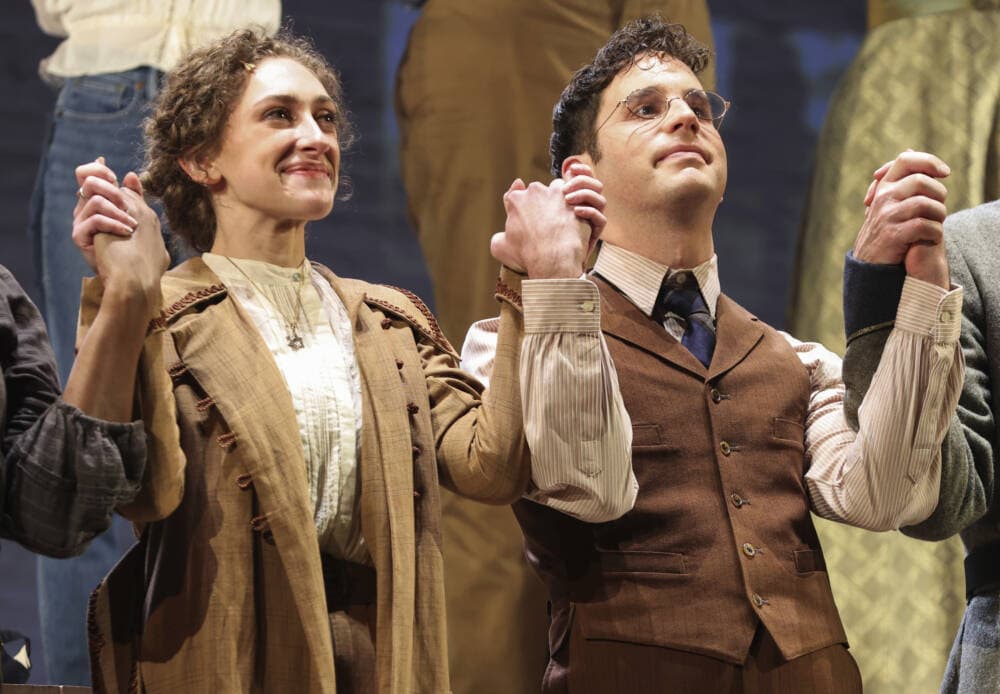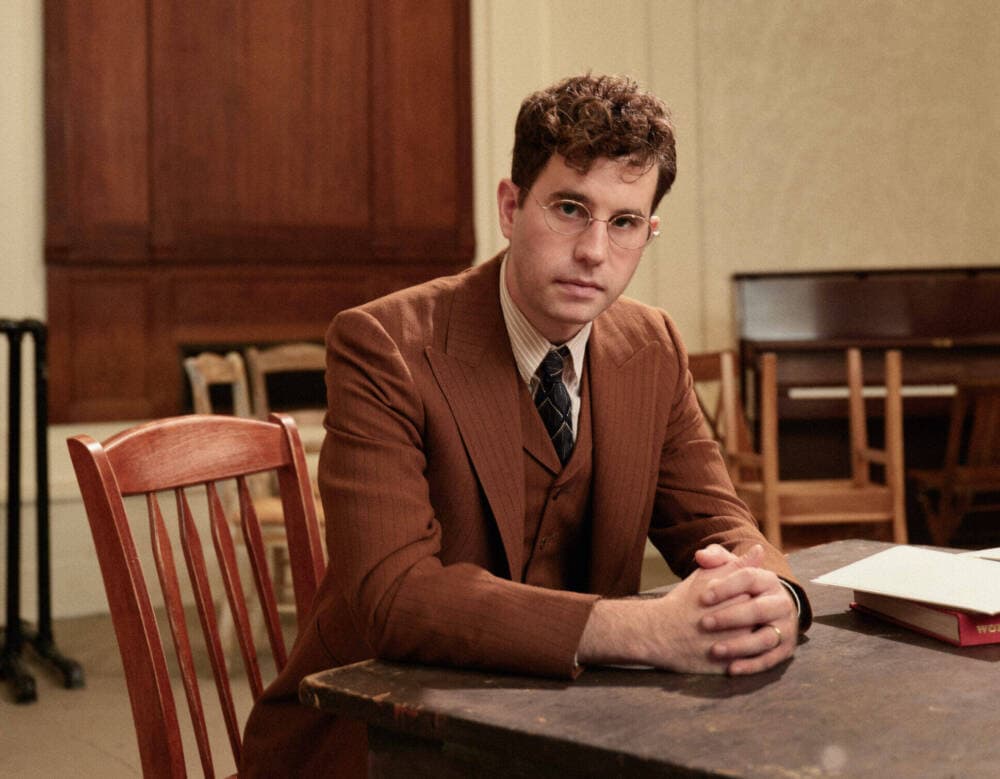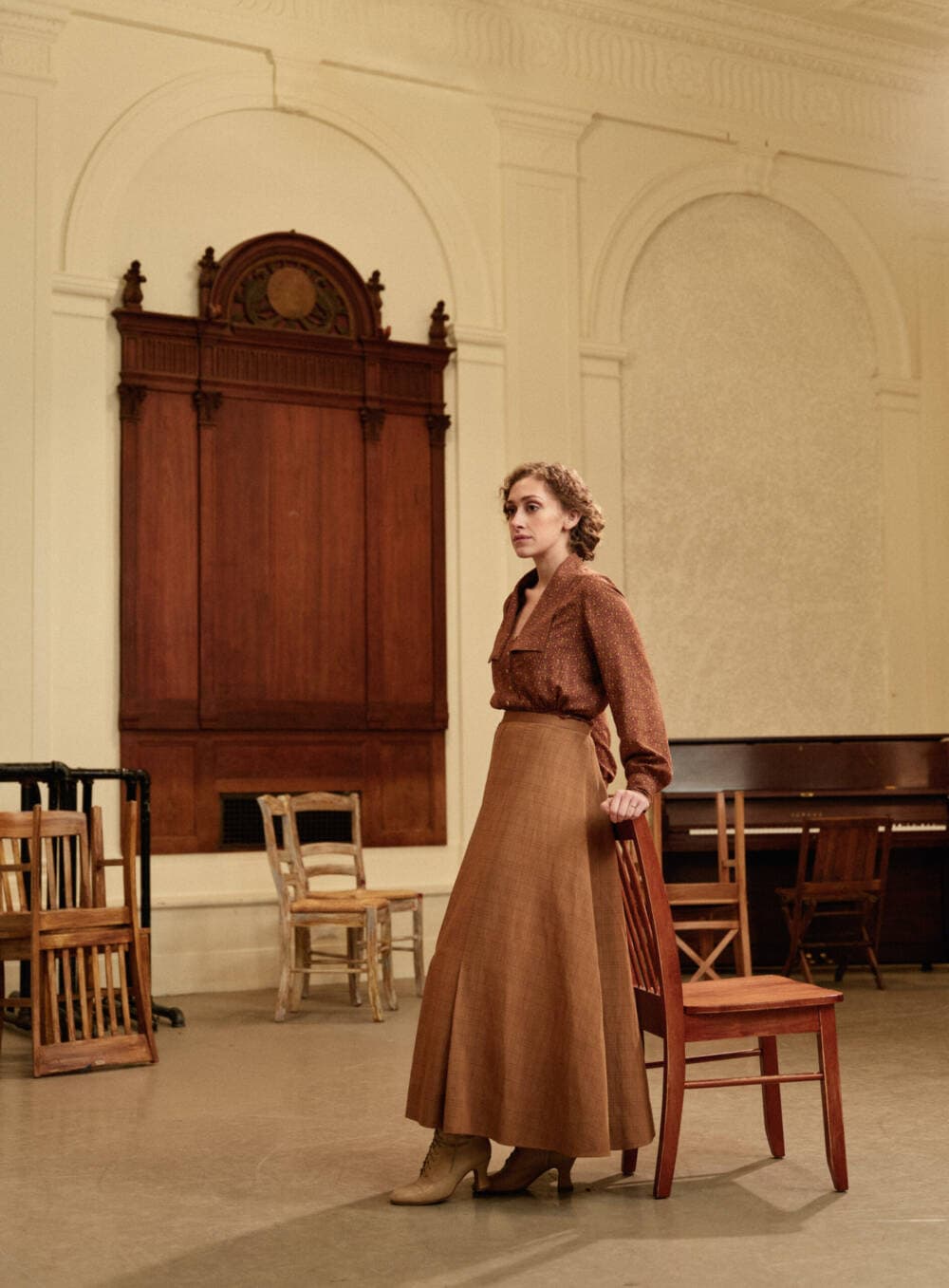Advertisement
'Parade' musical wins Best Revival Tony telling true story of false imprisonment of Jewish man

Click here for the original audio.
The haunting musical "Parade" took the award for Best Revival of a Musical at Sunday night's Tony Awards. Director Michael Arden won for Best Director.
The show unravels the real-life story of a Jewish man named Leo Frank who was falsely accused of killing a 13-year-old girl in Atlanta 110 years ago. He was tried, convicted, and exonerated — but lynched in prison before he could be released.
“Parade” was written by Alfred Uhry and premiered in 1998. The revival stars a heartbreaking Ben Platt as Leo Frank opposite an equally powerful Micaela Diamond as his wife, Lucille Frank. The events are a century old, but they feel like they could have happened last week. And the show has been the target of Neo-Nazi protesters.

The “hopeful and human love story” between Leo and Lucille Frank brings a sense of beauty to this gut-wrenching story, Platt says.
“I think we have felt, at this moment in time, the gravity. So there certainly is a weight for all of us when we enter the theater,” Platt says. “I painted my dressing room pink to sort of counteract some of that heaviness.”
The revival marks the first time two Jewish actors have portrayed the couple. After backing away from the religious side of her identity throughout her life, Diamond says “Parade” has brought her on a journey of understanding her Jewishness.
“I think doing this show, it's been interesting to kind of lean into knowing that I will always be a Jew and people always see me as a Jew,” Diamond says. “And the neo-Nazis outside of our theater are seeing my picture outside of the theater.”
4 questions with ‘Parade’ stars Ben Platt and Micaela Diamond
Did you research the real Leo and Lucille Frank?

Micaela Diamond: “Yes. What's kind of lovely about this show is there's researching of the real story, and then there's being the normal detective of a script. But yeah, Lucille is really assimilated into Southern society, which I think a lot of Jews did at the turn of the century, hoping to create some close proximity to safeness, which could also be considered whiteness at the time. And so she's kind of surprised by her husband's openness and love for his religion and for using words like meshuga, which she is like, ‘why do we have to speak this foreign language?’ And then her arc of the deniability of her Jewishness. So it's kind of a beautiful way to begin and end to show is this woman finding her Jewish voice.”
Ben Platt: “As Michela was saying, the nice thing about us being Jews playing these roles is that there's a lot of natural instinctual texture that we bring just based on who we are as people. And given the anti-Semitism at the moment and always, obviously, I always feel like everybody in any situation has a way that is special to them, to be an activist and to contribute to the conversation, whether that's antisemitism or any kind of oppression. And I feel like sort of what I have to offer is being able to create and shape this character as a real three-dimensional human being who is flawed and also deserves justice and fair treatment.
Advertisement
“It's such a strange, uncomfortable and painful character to take on, because obviously it's this kind of evil that is so easy for the townspeople to see in him, given his Judaism. And I think it just really highlights how easy it is for our image of someone to be painted by others and how convincing a mob mentality can be to the point of really being able to envision something that didn't happen.”
How emotional does telling this story get for the Black and Jewish actors in the cast?
Diamond: “Well, Michael Arden, who is at the helm of this production, really tried to create a super safe environment in our rehearsal room. But something that's kind of interesting to me about ‘Parade’ is it's kind of channeling this racist vitriol to find the candidate who will best fit the role of scapegoat and kind of satiate the need to avenge a white girl's death. And I think Black people and Jewish people are pitted against each other in this musical and in real life. And both of those communities in our company know that. And so I feel lucky to be able to tell the story. We just hope that people can hear it now, which perhaps they weren't ready to 25 years ago.”
What are you thinking as Leo Frank sits on stage in his jail cell during intermission?
Platt: “For me, that 15 minutes each night is a constant reminder and an opportunity to pay homage to the fact that this is a man and that he went through this and that he sat for the last two years of his life in prison alone. So to honor that nightly and maintain that part of his memory is so meaningful to me. I think the fact that it's during intermission when people have to get up and pee and get food and talk and laugh and, unfortunately, inappropriately take pictures of me sometimes really tests people's feelings and makes you kind of reckon with, you know, am I going to just not really pay attention to this or am I going to sit and just continue to take this in? Because Leo did not have the option of going to the concession stand.”
How does it feel when Platt sings the Shema, the holiest of Hebrew prayers, as he refuses to admit guilt?
Platt: “Of course, I mean, it for me provides a real comfort in that moment, which I think is what we are kind of imagining and provided for Leo because it's something I've heard my whole life that my parents used to say to me that I said it at day school that we say in shul and so, you know, it's the ultimate comfort. So I try in that moment, amidst a lot of difficulty, to find some comfort and some joy in getting to decree that prayer.”
Diamond: “I hold my Jewish star necklace backstage and wait to enter for the next scene.”
This segment aired on June 12, 2023.

